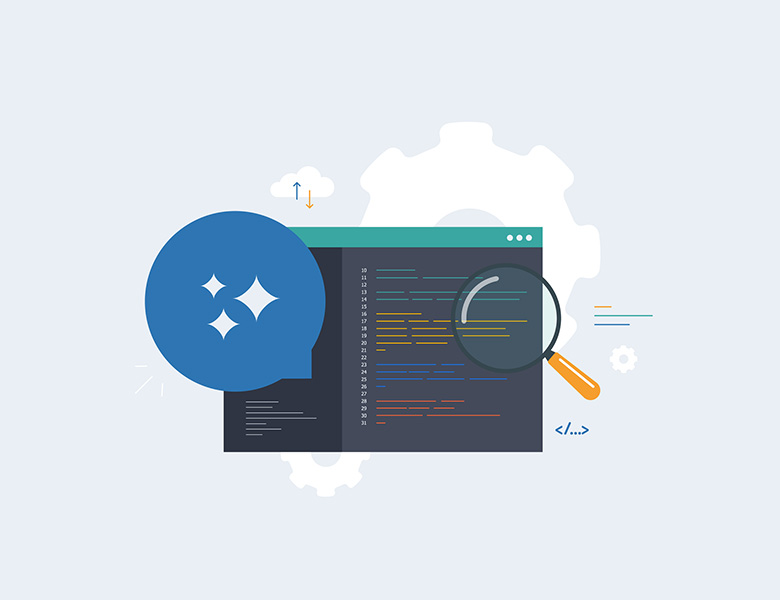If you’re in software development, you’re likely familiar with xOps, especially in the form of MLOps. However, for companies that are just beginning to implement these solutions, the framework is probably new territory. Regardless of where you stand, there’s a valuable takeaway for everyone.
xOps aims to break down silos and create a unified approach to operational efficiency across various domains. The rise of agile methodologies paved the way for several specialized operational frameworks, including DevOps, DataOps, ModelOps, and MLOps. Recognizing the broader potential, Gartner identified xOps as one of its top 10 data and analytics trends in 2021. This raised a critical question: Is xOps simply an attempt to merge all these methodologies into a single framework? The answer is more nuanced.
Rather than forcing all operational models into one, xOps provides a flexible framework that boosts collaboration, governance, and efficiency across different teams, whether in IT, HR, finance, or manufacturing. It allows organizations to adopt agile principles not just in software development but across entire business functions, fostering a culture of continuous improvement and shared best practices.
By using standardized tools, processes, and methodologies, xOps enables smoother cross-team collaboration, greater operational agility, and more effective resource utilization. In manufacturing, this means integrating digital tools, AI-driven decision-making, and real-time data analytics into core processes, that will increase productivity and promote innovation.
Why Manufacturing Needs xOps
Manufacturing at first could appear to be an unsuitable field for xOps. After all, traditional manufacturing processes emphasize physical production, quality control, and logistics. However, technology has reshaped the industry, establishing xOps as a critical enabler of efficiency, innovation, and growth.
In recent years, many manufacturers have adopted aggressive growth strategies based on a relentless commitment to quality and customer satisfaction. This has led to the use of advanced technologies such as artificial intelligence (AI), computer vision, and data analytics to improve production processes. The need for xOps stems from this transformation, which requires that these innovations are seamlessly integrated, scalable, and aligned with business objectives.
A modern manufacturing operation is more than just producing goods; it's also about using data to improve decision-making. xOps helps manufacturers streamline data collection, improve process visibility, and uncover insights that drive ongoing growth. For example, AI-powered computer vision can detect defects in real time, while predictive analytics can help predict maintenance needs, reducing downtime and increasing efficiency.
Beyond production, xOps encourages collaboration among traditionally siloed teams. Companies that implement standardized processes and tools across engineering, IT, and operations can create a more agile and responsive manufacturing environment. This approach not only improves quality, but it also allows manufacturers to scale efficiently and remain competitive in an increasingly data-centric world.
The Role of xOps in Driving Innovation
When talking about xOps in manufacturing, it's easy to notice how it relates to AI, machine learning, and automation. But it's not enough to just think about the technologies; you should also think about where they have the most significant effect. Innovation is often driven at the plant level in manufacturing, where things like operational efficiency, quality control, and enabling workers are very important.
Sales and marketing have been using data-driven methods for a long time, but manufacturing is still an area where technology can make huge changes. The assembly line itself is one important area that is affected. In the past, workers learned how to put together complicated things by reading printed manuals and getting a lot of hands-on experience. But in modern manufacturing, digital tools are making these processes faster and easier.
To help workers on the floor, companies are using technologies like augmented reality (AR) headsets and AI-driven guidance systems. Assemblers don't have to read through manuals because they can access real-time instructions. This cuts down on mistakes and boosts productivity.
By adding xOps to these steps, businesses can make sure that new AI, automation, and data analytics technologies aren't just used on their own, but as part of a well-run ecosystem that can grow as needed. This makes workers more productive, speeds up training, and, in the end, makes products better.
Building the Foundation for xOps in Manufacturing
xOps frameworks are a step forward for businesses looking for ways to improve their operations, particularly in manufacturing environments where data-driven decision-making is shaking up traditional IT and operational structures. As manufacturing relies more on real-time data, sensor-driven insights, and advanced automation, the ability to efficiently manage and scale these capabilities becomes critical.
The real challenge is organizing and operationalizing massive amounts of multimodal data coming in from IoT sensors, cameras, and other smart devices embedded in production lines. This influx of data goes far beyond traditional enterprise data warehouses, necessitating a more sophisticated approach to ingestion, processing, and utilization.
To address this complexity, an agile framework is being implemented to help different business teams align on analytics and operational improvements. However, as more teams require access to high-quality data for specific use cases, the need for a structured DataOps approach becomes clear. Instead of separate analytics efforts, a centralized DataOps team is typically formed to establish best practices for data ingestion, enterprise data modeling, and governance. This shared services model ensures consistency across teams, maximizing resources and laying the groundwork for future scalability.
The long-term vision goes beyond DataOps. The roadmap includes maturing into MLOps, ModelOps, and eventually AIOps, in which AI-driven automation and orchestration will streamline operations from start to finish. It is expected that within the next three to five years, AIOps will include all of these components, resulting in a fully integrated and intelligent manufacturing ecosystem.
Scaling xOps by Future-Proofing Talent and Building a Center of Excellence
As companies move forward on their xOps journey, thinking ahead about your workforce becomes just as important as planning your tech stack. That means spotting skill gaps early and investing in upskilling, cross-training, and smart hiring strategies.
Looking Ahead What Will Your Team Need?
Leadership has a key role in shaping the future talent strategy. That means asking some important questions:
- What skills do we already have? Take stock of what your current team can do and figure out which skills can be sharpened through training.
- What roles will we need in the future? Automation takes over repetitive tasks so jobs like data engineering and analysis will change. You’ll need people who can handle more advanced, AI-driven work.
- How do we fill the gaps? Decide whether it makes more sense to retrain your team, bring in new hires, or bring in outside experts to cover specialized needs.
As automation and AI take a bigger role, data engineers may spend more time on building pipelines and automation tools, while data analysts might need to move into more advanced AI-based analysis. Functions like Master Data Management (MDM) and data governance will also need to evolve to support smarter, AI-led decision-making.
Enter the Center of Excellence (CoE)
A big part of building a successful xOps strategy is setting up a Center of Excellence, or CoE. Think of it as your internal team of experts that starts off as a centralized resource but gradually weaves itself into different parts of the organization. The CoE plays a crucial role in giving structure and direction to your AI and data efforts. It helps set clear standards for managing data, adopting analytics tools, and rolling out AI solutions in a consistent, repeatable way.
As your AI capabilities grow, the CoE also ensures that things like model tracking, performance monitoring, and governance are handled properly. The CoE also keeps an eye on new technologies, from vector databases to cutting-edge machine learning methods, making sure any new tools align with the company’s goals. Just as importantly, it creates an environment where teams feel encouraged to experiment, innovate, and bring bold ideas to life. With this kind of support structure, companies can scale their AI efforts without falling into the trap of fragmented, siloed initiatives.
Making Upskilling Work
One of the biggest challenges in all of this? Helping your team learn new skills while still getting their day-to-day work done. The solution is a multi-layered approach that blends learning into the flow of work.
Here are some smart ways to upskill your workforce:
- Learn while doing: Let people build new skills by working on future-focused projects.
- Teach the basics to everyone: Make sure all team members understand the fundamentals, like statistics, machine learning, and new tech trends.
- Create custom learning paths: Let employees specialize in areas that match both company goals and their own interests.
- Encourage team-to-team learning: Get internal teams to teach each other. It’s a great way to build expertise without relying too much on external consultants.
- Bring in experts wisely: Use outside help not just to get things done, but to teach your team in the process.
By making continuous learning part of the culture, companies stay agile and their people are ready for whatever comes next.
How Solwey Can Help your Business
At Solwey, we have a strong background in custom software development, and we bring industry expertise to every project, delivering software that not only works, but works for you. Whether you work in finance, healthcare, retail, or manufacturing, our industry-specific solutions are tailored to the specifics of your field.
If you’re unsure where to start, we can help you formulate a plan. Just tell us about your challenges and what’s holding you back. We can guide you through finding a solution, whether that means optimizing existing tools or building something new.
Additionally, with Solwey you don't have to sacrifice price to get exceptional service. Our competitive pricing structure ensures that you receive high-quality custom software without breaking the bank. With our agile processes, we can deliver results faster, allowing you to respond quickly to market demands or operational changes.
We place a high value on dependability and customer support. We will be there for you from start to finish, and beyond. Our team is committed to providing seamless support, ensuring that your software runs smoothly and your business runs more efficiently.
Allow us to be your trusted partner in driving your digital transformation. Choose Solwey for quick, adaptable, and dependable software solutions that will keep you ahead of the competition.





